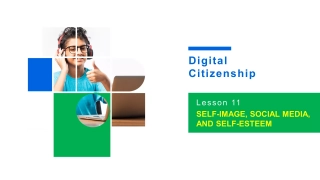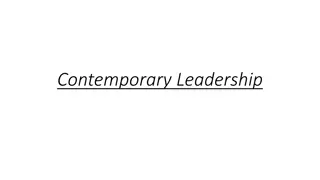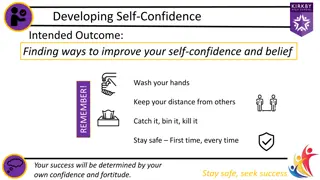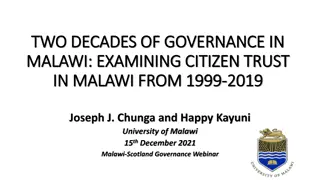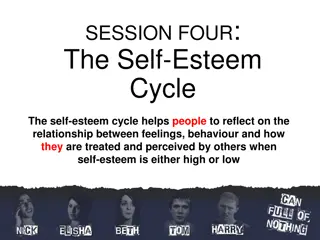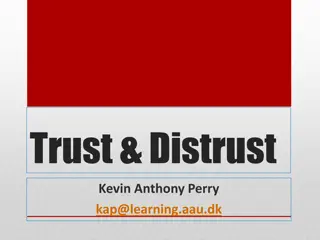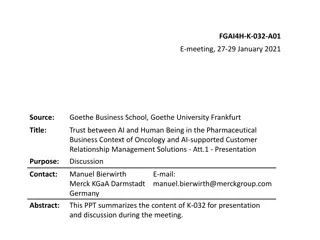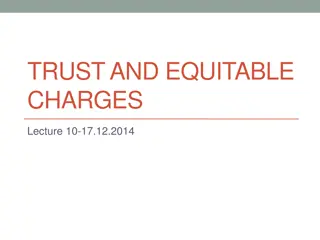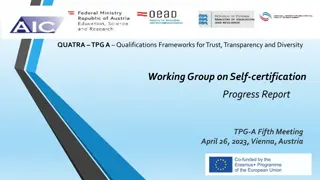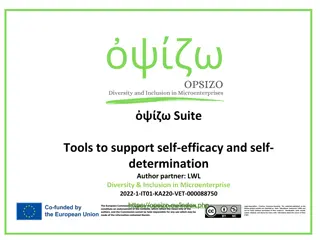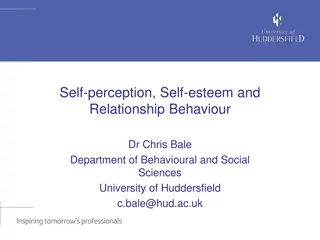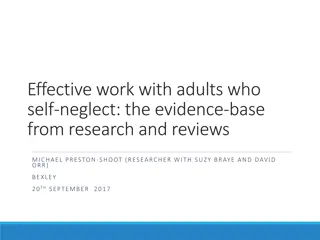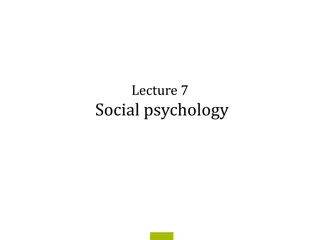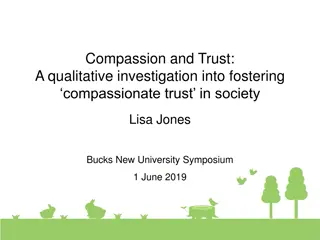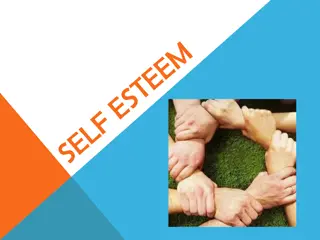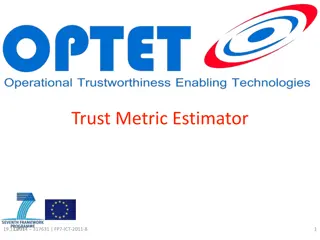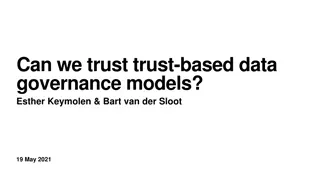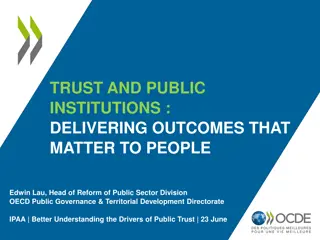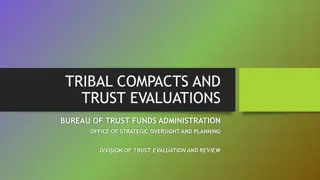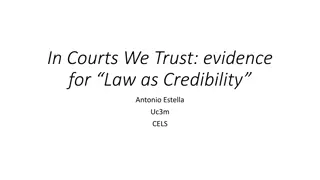Digital Citizenship: Self-Image, Social Media, and Self-Esteem
Explore the impact of social media on self-image and self-esteem. Learn about the influence of filters and media on body perception. Reflect on self-assessment and take-home activities to improve self-confidence.
3 views • 11 slides
Understanding Self-Worth in Children: Building a Strong Foundation
Explore the importance of self-concept, self-esteem, and self-worth in children's development. Learn how parents can positively impact a child's self-perception and self-value through nurturing experiences. Discover the key sources influencing children's self-worth and the critical role of early lif
0 views • 30 slides
Securitization of Covid-19 in Hong Kong: Trust and Success
Analyzing the successful securitization of Covid-19 in Hong Kong amidst low political trust, this study explores the role of trust, smart technologies, and governmental factors in managing the pandemic. Key elements include political trust, audience acceptance, smart technology trust, and effectiven
2 views • 19 slides
Understanding Self-Esteem: Meaning, Importance, and Types
Self-esteem is how we perceive our worth and value. High self-esteem leads to confidence and positivity, while low self-esteem can result in self-doubt and negative emotions. Self-esteem impacts mental health, behavior, decisions, relationships, and overall success in life. Recognizing and nurturing
2 views • 15 slides
Understanding Self-Esteem and Ways to Improve It
Self-esteem is our perception of ourselves, impacting how we navigate life. Healthy self-esteem fosters positivity, while low self-esteem can be detrimental. Various factors, like childhood experiences, contribute to low self-esteem, but steps can be taken to improve it. Building positive relationsh
0 views • 14 slides
Understanding the Self: Psychology's Focus and Implications
The field of psychology has long been intrigued by the concept of self, exploring its importance to well-being, self-esteem, and brain localization. Research reveals how excessive optimism, self-bias, and blindness to incompetence can impact self-esteem. Contrasting individualist and collectivist cu
1 views • 41 slides
Understanding Trust in Contemporary Leadership
Trust is the foundation of effective leadership, comprising elements like integrity, competence, consistency, loyalty, and openness. Trust plays a crucial role in leadership, impacting team performance and cooperation. Different types of trust - deterrence-based, knowledge-based, and identification-
0 views • 9 slides
Building Self-Confidence: Key Steps and Benefits
Understanding self-confidence, its importance, and how to develop it can lead to enhanced resilience, motivation, reduced fear and anxiety, and a stronger sense of self. Self-confidence allows for confident behavior, while lack of it can lead to self-doubt and avoidance of risks. Learning to embrace
0 views • 7 slides
The Importance of Self-Awareness in Personal Growth
Self-awareness is crucial for understanding one's character, feelings, and motivations. It helps in recognizing strengths and weaknesses, managing stress, improving communication, and fostering empathy. Developing self-awareness involves introspection, mindfulness, self-reflection, and seeking feedb
2 views • 47 slides
Developing a Self-Care Action Plan for Overall Well-Being
Self-care involves deliberate activities to nurture mental, emotional, physical, and spiritual health, yet it is often neglected. This guide explores the essence of self-care, emphasizes the importance of building a personalized self-care action plan, and provides insights into taking care of your b
0 views • 19 slides
Examining Citizen Trust in Malawian Governance Over Two Decades (1999-2019)
This paper critically analyzes public trust in key government institutions in Malawi from 1999 to 2019, highlighting a general decline in trust levels and its impact on political legitimacy. The study explores factors influencing public trust, such as perceptions of government performance, integrity
0 views • 12 slides
Enhancing Self-Confidence for Professional Success
Understanding the importance of self-confidence in the workplace is crucial for personal growth and career advancement. Self-confident individuals trust their abilities, maintain a sense of control over their lives, and have realistic expectations. This summary delves into the characteristics of sel
0 views • 13 slides
Leadership, Trust, and Crisis: Lessons from Central Europe Project
The project funded by multiple governments in Central Europe aims to advance sustainable regional cooperation. The initiative focuses on understanding leadership as a process involving trust, especially in crisis situations. The lesson structure includes case studies, discussions on resources, and e
4 views • 19 slides
Understanding the Self-Esteem Cycle: High vs Low Self-Esteem
The self-esteem cycle explores the interplay between one's feelings, behavior, and how they are treated based on their self-esteem level. High self-esteem is associated with positive feelings, supportive behavior, and positive interactions, while low self-esteem manifests in negative emotions, withd
9 views • 4 slides
Exploring Trust and Distrust in Social Interactions
Understanding the dynamics of trust and distrust within social interactions is vital for successful service delivery and relationship-building, especially in youth work settings. This case study highlights the complexities of gaining trust, the significance of trusting relationships, and the cultura
1 views • 50 slides
Trust Dynamics in AI-Powered Pharmaceutical Business: A Critical Analysis
Exploring the intricate relationship between AI and human trust in the context of the pharmaceutical industry, this presentation delves into the factors influencing trust dynamics and proposes implementation strategies to foster trust between sales representatives and oncologists in AI-supported too
2 views • 12 slides
Enhancing Self-Regulation for Formative Assessment through Social and Emotional Learning
Explore the significance of self-regulation in formative assessment, understand key concepts like self-control, emotional competence, and perseverance. Discover actionable strategies to implement self-regulation interventions with students and train other adults effectively. Future orientation and s
0 views • 25 slides
Understanding Mindful Self-Judgment and Its Role in Mental Health
Mindful self-judgment is a complex concept that involves balancing self-awareness and self-compassion. While nonjudgment is a key aspect of mindfulness practices, there is a debate on whether mindful self-judgment can be appropriate and functional in certain circumstances. Researchers like June Pric
2 views • 46 slides
Understanding Self-Esteem: Highs and Lows
Self-esteem is the judgment we hold about ourselves, shaped by experiences and relationships. High self-esteem individuals embrace new encounters with confidence and positivity, while low self-esteem individuals struggle with self-doubt and criticism. Recognizing signs of low self-esteem is crucial
0 views • 11 slides
Enhancing Self-Regulation Skills in Children: Strategies and Tips
Understanding and fostering self-regulation in children is crucial for their development. Self-regulation involves controlling impulses, focusing, and shifting between tasks. This article delves into the internal mechanisms of self-regulation, such as executive function, and provides practical tips
1 views • 22 slides
Understanding Trust and Equitable Charges in Property Law
Trust and equitable charges in property law involve a legal obligation where the property holder manages the property for the benefit of another person. This trust relationship consists of elements like legal title, trust property, and beneficiaries. The creators of a trust can be referred to as set
0 views • 25 slides
Trust-Based Anonymous Communication Models and Routing Algorithms
This research paper discusses trust-based anonymous communication models and routing algorithms in the context of onion routing, emphasizing the importance of trust in mitigating security risks from adversaries with resources. The paper presents a model of trust and proposes trust-based routing algo
0 views • 65 slides
Boosting Your Child's Self-Esteem & Confidence in Parenting Workshop Series
Understanding self-esteem in children is crucial for their emotional development. Healthy self-esteem leads to positive behaviors, while low self-esteem can result in negative self-perceptions. Recognizing signs of healthy and unhealthy self-esteem allows parents to support and nurture their child's
0 views • 11 slides
Progress Report on QUATRA.TPG.A Qualifications Frameworks for Trust
The Working Group on Self-certification, part of QUATRA.TPG.A, aims to provide a platform for discussions and recommendations on self-certification. Key outcomes include survey findings, setting a date for the PLA on self-certification, and discussions on NQF self-certification processes. Survey key
0 views • 9 slides
Enhancing Self-Efficacy and Self-Determination in the Workplace
Establishing high levels of self-efficacy and self-determination in the workplace is crucial for accomplishing tasks and goals effectively. This publication explores the significance of these traits, providing strategies for managers to foster and maintain them. Discover why self-efficacy and self-d
0 views • 8 slides
Understanding Self-Perception, Self-Esteem, and Relationship Behavior
The discussion explores the impact of low self-esteem on various psychological issues, societal views on self-worth, self-perception biases, and the consequences of self-esteem in different aspects of life, backed by research and theories such as the Better-Than-Average Effect and Sociometer Theory.
0 views • 19 slides
Trusting Your Internal Compass: A Path to Self-Discovery
Understanding self-trust is crucial for long-term happiness. Discover the importance of trusting yourself, signs of lack of self-trust, and how to rebuild trust through self-compassion and recognition. Embrace self-awareness, authenticity, and confidence to navigate life's challenges.
0 views • 21 slides
Understanding Self-Acceptance and Overcoming Stigma
Self-esteem and self-acceptance are distinct concepts, with self-acceptance focusing on embracing all facets of oneself unconditionally. Developing self-acceptance involves stages like aversion, curiosity, tolerance, and allowing. Overcoming avoidance and resistance can lead to self-compassion and g
0 views • 10 slides
Understanding Leadership and Self-Leadership for Personal Development
Leadership is defined as an influence relationship between leaders and followers striving for real change. It involves self-awareness, self-management, and self-development. Self-leadership begins with understanding oneself, motives, and capabilities through self-awareness, ultimately leading to pur
0 views • 42 slides
Trust as a Proxy for Certainty in Social Cohesion
Exploring the intricate relationship between trust, security, and social cohesion, this study delves into how trust serves as a proxy for certainty in uncertain environments. By analyzing societal properties and the role of trust in managing risks and insecurities, the Peace Research Institute Oslo
0 views • 16 slides
Understanding Self-Neglect in Adults: Challenges and Research Insights
This content delves into the complex issue of self-neglect in adults, covering its definition, key challenges, and the research evidence available. It explores the various aspects of self-neglect, including neglect of self-care, domestic environment, and refusal of services. The challenges associate
0 views • 39 slides
Understanding the Self in Social Psychology
Delve into the concept of the individual and the self in social psychology, exploring how identities have evolved historically and the distinction between collective and individual selves. Learn about self-awareness, Wundt's differentiation of I and me, and Higgins' self-discrepancy theory, shedding
0 views • 84 slides
Cultivating Compassionate Trust in Society: A Qualitative Exploration
This qualitative investigation delves into the concept of compassionate trust and its role in fostering positive societal interactions. Through a social constructionist lens, the study explores how individuals understand and embody compassionate trust, emphasizing the interconnectedness of compassio
0 views • 16 slides
Boosting Self-Esteem: Benefits and Tips for Improvement
Understanding self-esteem, its benefits, and risks of low self-esteem are essential for personal growth. Developing high self-esteem can lead to increased self-respect, goal achievement, and willingness to try new things. On the other hand, low self-esteem can make individuals vulnerable to peer pre
0 views • 10 slides
Trust Metric Estimator: Computational Model for Trustworthiness Assessment
The Trust Metric Estimator project aims to create a computational model to estimate user trust levels towards system performance over time. It considers social and technical factors, integrating trust, trustworthiness, and economic aspects to aid decision-making. Research includes surveys to identif
2 views • 8 slides
Trust-Based Data Governance Models and Their Impact on Personal Data Regulation
This article delves into trust-based data governance models, contrasting them with control-based models in the context of personal data regulation. It explores the challenges and benefits associated with both approaches, emphasizing the emergence of new models centered on trust such as data stewards
0 views • 11 slides
Building Trust in Public Institutions: Insights and Strategies
Public trust in government institutions is declining in many OECD countries. Existing measures of trust often reflect leadership approval. Satisfaction with public services plays a crucial role in fostering trust. Investing in trust involves focusing on governance drivers and actions that enhance tr
0 views • 15 slides
Trust Evaluation Process in Tribal Compacts and Trust Funds Administration
Trust Evaluations are mandated under the Tribal Self Governance Act for Tribes engaging in trust programs. The Bureau of Trust Funds Administration conducts these evaluations, focusing on compliance with federal laws and safeguarding trust assets. The process includes questionnaires, reviews, and re
0 views • 13 slides
Trust Dynamics in Political Relationships: Evidence and Implications
Exploring the intricate dynamics of trust between Principals and Agents in political relationships, this study delves into the implications of mistrust and the shift in trust levels over time. Utilizing surveys on political trust and data on trust in governmental branches, the analysis sheds light o
0 views • 22 slides
Edkaagmik Nbiizh Neyaashiinigamiingninwag Trust Overview
Edkaagmik Nbiizh Neyaashiinigamiingninwag Trust, established in 2012 by Chippewas of Nawash Unceded First Nation Coldwater Trust, aims to benefit the First Nations community through various initiatives such as land acquisition, education advancement, and cultural preservation. The Trust is managed b
0 views • 15 slides
